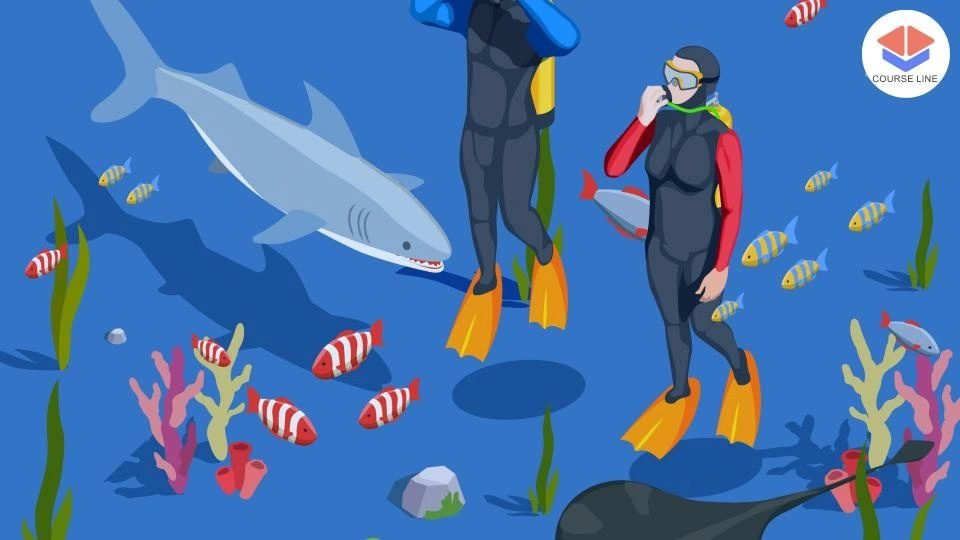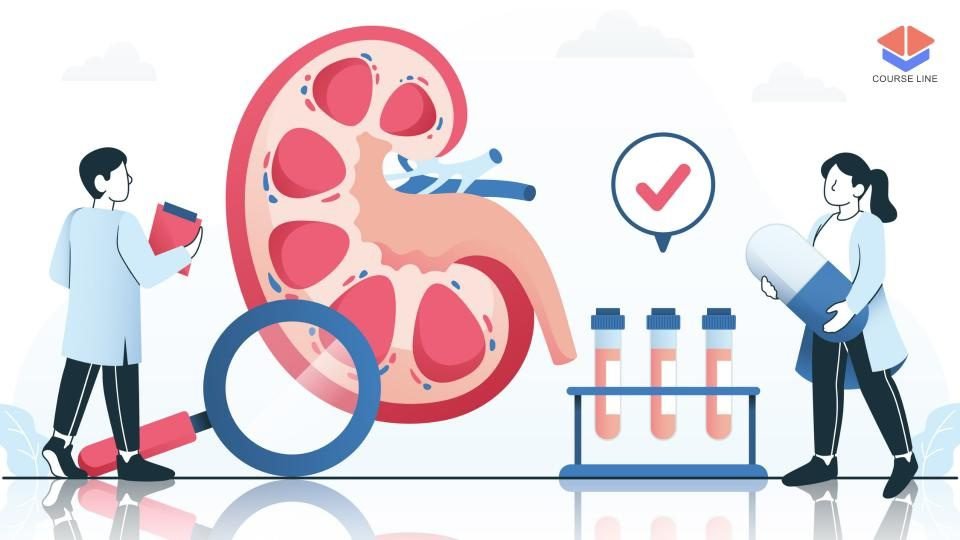Course Features
Price
Study Method
Online | Self-paced
Course Format
Reading Material - PDF, article
Duration
7 hours, 45 minutes
Qualification
No formal qualification
Certificate
At completion
Additional info
Coming soon
- Share
Overview
Who is this course for?
Requirements
Career path
-
- Overview of marine ecosystems 00:10:00
- Introduction to marine biodiversity 00:10:00
- Physical and chemical properties of seawater 00:10:00
- Principles of oceanography 00:10:00
- Introduction to marine organisms and their adaptations 00:10:00
-
- Ecological concepts and principles 00:10:00
- Trophic relationships in marine food webs 00:10:00
- Biotic and abiotic factors influencing marine communities 00:10:00
- Estuarine and coastal ecosystems 00:10:00
- Deep-sea and open-ocean ecosystems 00:10:00
- Threats to marine biodiversity 00:10:00
- Conservation strategies and practices 00:10:00
- Marine protected areas and their management 00:10:00
- Sustainable fishing practices 00:10:00
- Environmental impact assessment 00:10:00
- Introduction to marine mammals 00:10:00
- Anatomy, physiology, and behaviour of marine mammals 00:10:00
- Marine mammal conservation and management 00:10:00
- Marine mammal research techniques 00:10:00
- Whales, dolphins, seals, and sea lions 00:10:00
- Field trips to coastal and marine environments 00:10:00
- Collection and analysis of field data 00:10:00
- Identification of marine organisms 00:10:00
- Laboratory techniques and experiments 00:10:00
- Research project design and implementation 00:10:00
- Exam of Marine Biology Level 3 Advanced Diploma 00:50:00

No Reviews found for this course.
Is this certificate recognized?
Yes, our premium certificate and transcript are widely recognized and accepted by embassies worldwide, particularly by the UK embassy. This adds credibility to your qualification and enhances its value for professional and academic purposes.
I am a beginner. Is this course suitable for me?
Yes, this course is designed for learners of all levels, including beginners. The content is structured to provide step-by-step guidance, ensuring that even those with no prior experience can follow along and gain valuable knowledge.
I am a professional. Is this course suitable for me?
Yes, professionals will also benefit from this course. It covers advanced concepts, practical applications, and industry insights that can help enhance existing skills and knowledge. Whether you are looking to refine your expertise or expand your qualifications, this course provides valuable learning.
Does this course have an expiry date?
No, you have lifetime access to the course. Once enrolled, you can revisit the materials at any time as long as the course remains available. Additionally, we regularly update our content to ensure it stays relevant and up to date.
How do I claim my free certificate?
I trust you’re in good health. Your free certificate can be located in the Achievement section. The option to purchase a CPD certificate is available but entirely optional, and you may choose to skip it. Please be aware that it’s crucial to click the “Complete” button to ensure the certificate is generated, as this process is entirely automated.
Does this course have assessments and assignments?
Yes, the course includes both assessments and assignments. Your final marks will be determined by a combination of 20% from assignments and 80% from assessments. These evaluations are designed to test your understanding and ensure you have grasped the key concepts effectively.
Is this course accredited?
We are a recognized course provider with CPD, UKRLP, and AOHT membership. The logos of these accreditation bodies will be featured on your premium certificate and transcript, ensuring credibility and professional recognition.
Will I receive a certificate upon completion?
Yes, you will receive a free digital certificate automatically once you complete the course. If you would like a premium CPD-accredited certificate, either in digital or physical format, you can upgrade for a small fee.
Course Features
Price
Study Method
Online | Self-paced
Course Format
Reading Material - PDF, article
Duration
7 hours, 45 minutes
Qualification
No formal qualification
Certificate
At completion
Additional info
Coming soon
- Share
City & Guilds: Hospitality & Catering Operations Overview
Course Line238$1,003.03Original price was: $1,003.03.$30.68Current price is: $30.68.Urology Essentials: Diagnosis and Treatment Strategies
Course Line237$1,003.03Original price was: $1,003.03.$30.68Current price is: $30.68.
Related Courses
Mastering Statics: Principles and Applications in Engineering Mechanics
$1,003.03Original price was: $1,003.03.$30.68Current price is: $30.68. 237
237Mining Engineering Level 3 Advanced Diploma
$1,003.03Original price was: $1,003.03.$30.68Current price is: $30.68. 241
241History Level 3 Advanced Diploma
$1,003.03Original price was: $1,003.03.$30.68Current price is: $30.68. 241
241
Related Courses
Mastering Statics: Principles and Applications in Engineering Mechanics
$1,003.03Original price was: $1,003.03.$30.68Current price is: $30.68. 237
237Mining Engineering Level 3 Advanced Diploma
$1,003.03Original price was: $1,003.03.$30.68Current price is: $30.68. 241
241History Level 3 Advanced Diploma
$1,003.03Original price was: $1,003.03.$30.68Current price is: $30.68. 241
241








